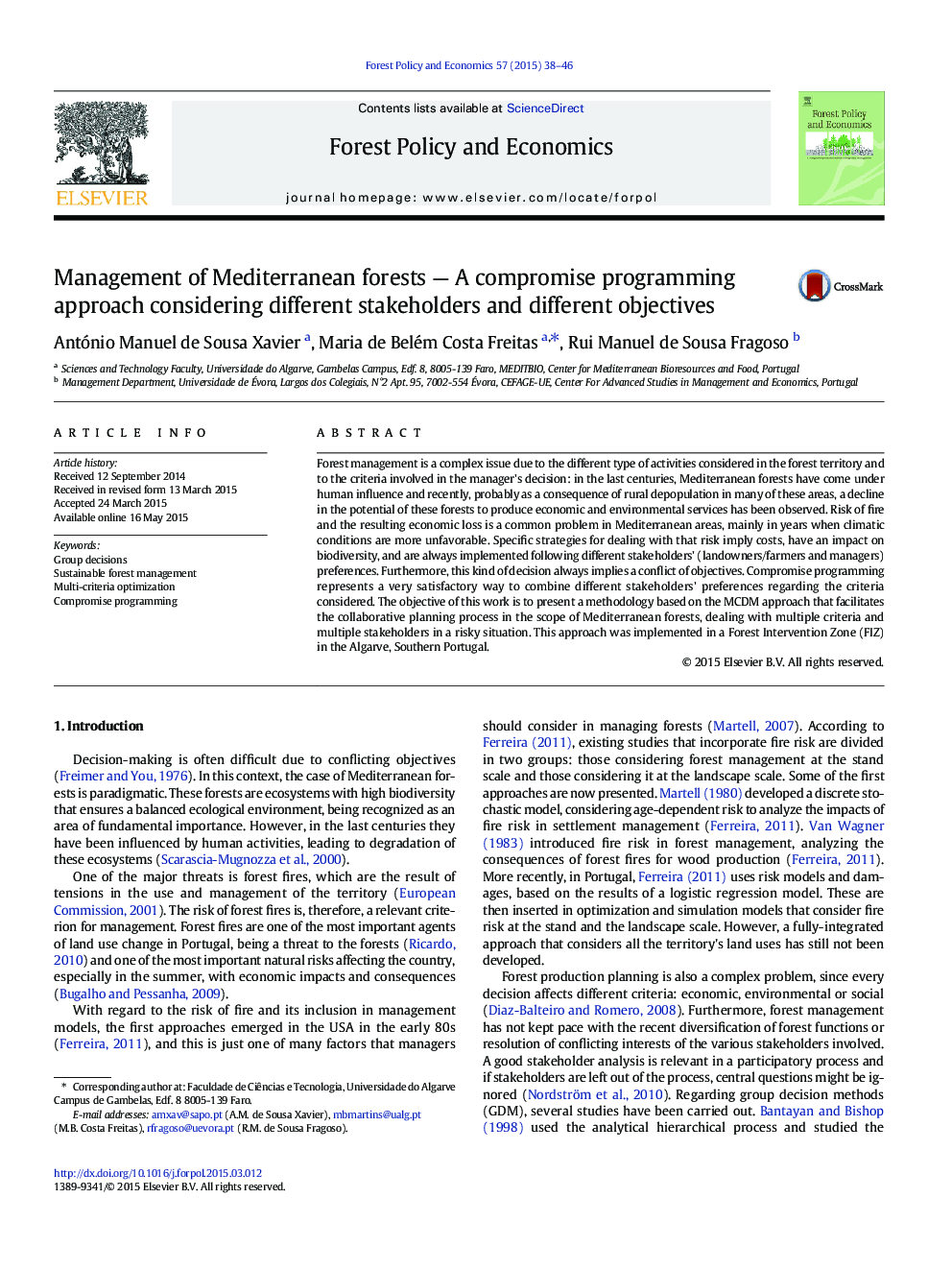| Article ID | Journal | Published Year | Pages | File Type |
|---|---|---|---|---|
| 91781 | Forest Policy and Economics | 2015 | 9 Pages |
•Forest management is a complex issue that includes market and environmental services, risk of fire and economic aspects.•Strategies to deal with risk imply costs, impact biodiversity, and stakeholders’ preferences between objectives.•A compromise programming approach can deal with multiple criteria and multiple stakeholders in a risky situation.•Trade-off between economic result and risk is greater than that between economic result and biodiversity.•In spite their different weights the set of compromise decisions of different stakeholders are limited for economic results.
Forest management is a complex issue due to the different type of activities considered in the forest territory and to the criteria involved in the manager's decision: in the last centuries, Mediterranean forests have come under human influence and recently, probably as a consequence of rural depopulation in many of these areas, a decline in the potential of these forests to produce economic and environmental services has been observed. Risk of fire and the resulting economic loss is a common problem in Mediterranean areas, mainly in years when climatic conditions are more unfavorable. Specific strategies for dealing with that risk imply costs, have an impact on biodiversity, and are always implemented following different stakeholders' (landowners/farmers and managers) preferences. Furthermore, this kind of decision always implies a conflict of objectives. Compromise programming represents a very satisfactory way to combine different stakeholders' preferences regarding the criteria considered. The objective of this work is to present a methodology based on the MCDM approach that facilitates the collaborative planning process in the scope of Mediterranean forests, dealing with multiple criteria and multiple stakeholders in a risky situation. This approach was implemented in a Forest Intervention Zone (FIZ) in the Algarve, Southern Portugal.
